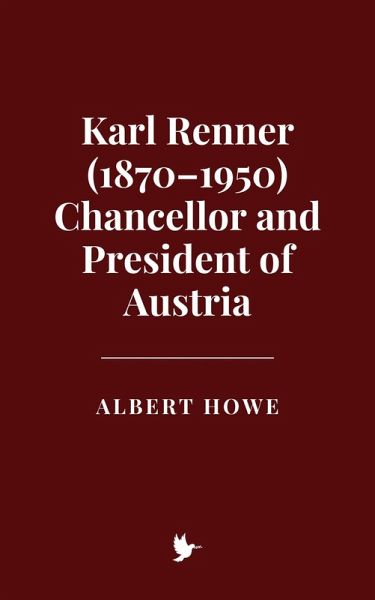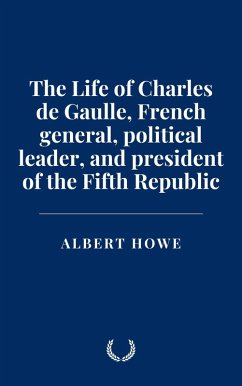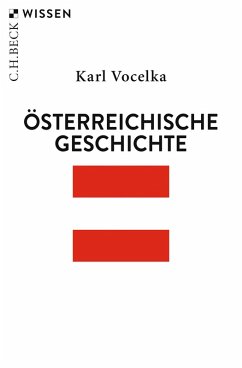
Karl Renner (1870-1950), Chancellor and President of Austria (eBook, ePUB)

PAYBACK Punkte
0 °P sammeln!
This book offers a comprehensive examination of Karl Renner's life, political career, and lasting influence on Austria and European thought. From his early years in the Austro-Hungarian Empire to his pivotal role in the creation of the First and Second Austrian Republics, Renner's ideas shaped the development of Austria's democratic institutions and its vision for a neutral, federal, and socially just state. His intellectual journey, marked by a commitment to socialism, federalism, and national reconciliation, is explored in depth, with attention to his advocacy for a decentralized Austria tha...
This book offers a comprehensive examination of Karl Renner's life, political career, and lasting influence on Austria and European thought. From his early years in the Austro-Hungarian Empire to his pivotal role in the creation of the First and Second Austrian Republics, Renner's ideas shaped the development of Austria's democratic institutions and its vision for a neutral, federal, and socially just state. His intellectual journey, marked by a commitment to socialism, federalism, and national reconciliation, is explored in depth, with attention to his advocacy for a decentralized Austria that could accommodate its ethnic diversity.
The book delves into Renner's impact during key historical moments, including his leadership during the aftermath of World War I, his efforts to establish Austria's independence after the Nazi occupation, and his diplomatic work securing Austria's neutrality in the post-war period. Renner's role in the complex international landscape of the Cold War and his contributions to shaping Austria's place in the European order are examined alongside the continuing controversies surrounding his collaboration with the Nazi regime during the Anschluss. The tension between Renner's vision for a democratic, multi-ethnic, and neutral Austria and the realities of the ideological struggles of his time provides a nuanced understanding of his legacy.
Throughout, the book analyzes Renner's influence on Austrian political thought, particularly his role in fostering social democracy, the welfare state, and a pluralistic society. His ideas on federalism, democracy, and neutrality remain foundational to Austria's post-war identity, while his contributions to the broader European intellectual tradition continue to resonate. The work reflects on the enduring complexity of Renner's legacy, offering a balanced view of his achievements and the moral and political dilemmas he faced. Through in-depth analysis of his writings, policies, and actions, this book provides a critical and multifaceted portrait of one of the most important and controversial figures in Austrian history.
The book delves into Renner's impact during key historical moments, including his leadership during the aftermath of World War I, his efforts to establish Austria's independence after the Nazi occupation, and his diplomatic work securing Austria's neutrality in the post-war period. Renner's role in the complex international landscape of the Cold War and his contributions to shaping Austria's place in the European order are examined alongside the continuing controversies surrounding his collaboration with the Nazi regime during the Anschluss. The tension between Renner's vision for a democratic, multi-ethnic, and neutral Austria and the realities of the ideological struggles of his time provides a nuanced understanding of his legacy.
Throughout, the book analyzes Renner's influence on Austrian political thought, particularly his role in fostering social democracy, the welfare state, and a pluralistic society. His ideas on federalism, democracy, and neutrality remain foundational to Austria's post-war identity, while his contributions to the broader European intellectual tradition continue to resonate. The work reflects on the enduring complexity of Renner's legacy, offering a balanced view of his achievements and the moral and political dilemmas he faced. Through in-depth analysis of his writings, policies, and actions, this book provides a critical and multifaceted portrait of one of the most important and controversial figures in Austrian history.
Dieser Download kann aus rechtlichen Gründen nur mit Rechnungsadresse in A, B, CY, CZ, D, DK, EW, E, FIN, F, GR, H, IRL, I, LT, L, LR, M, NL, PL, P, R, S, SLO, SK ausgeliefert werden.













